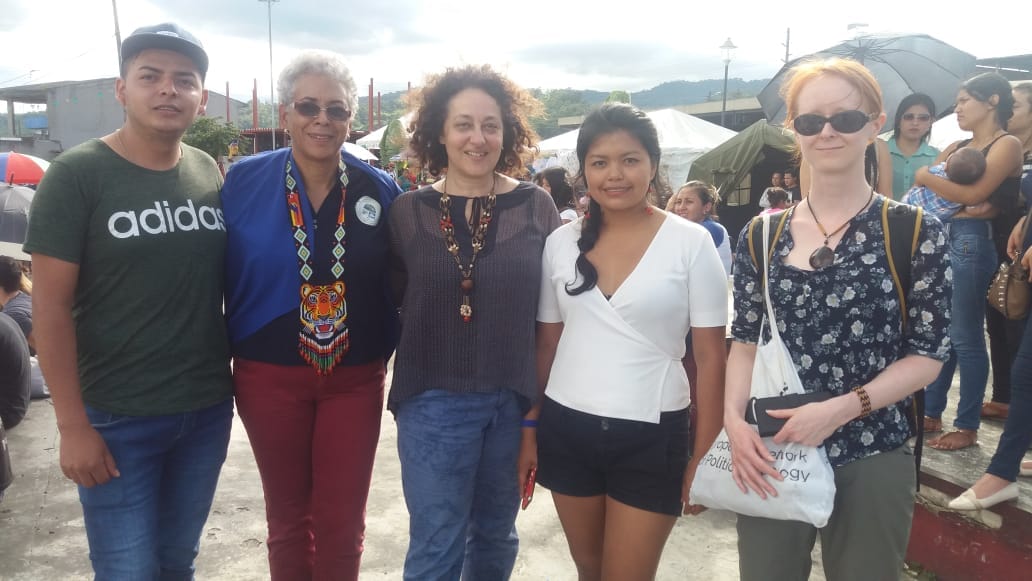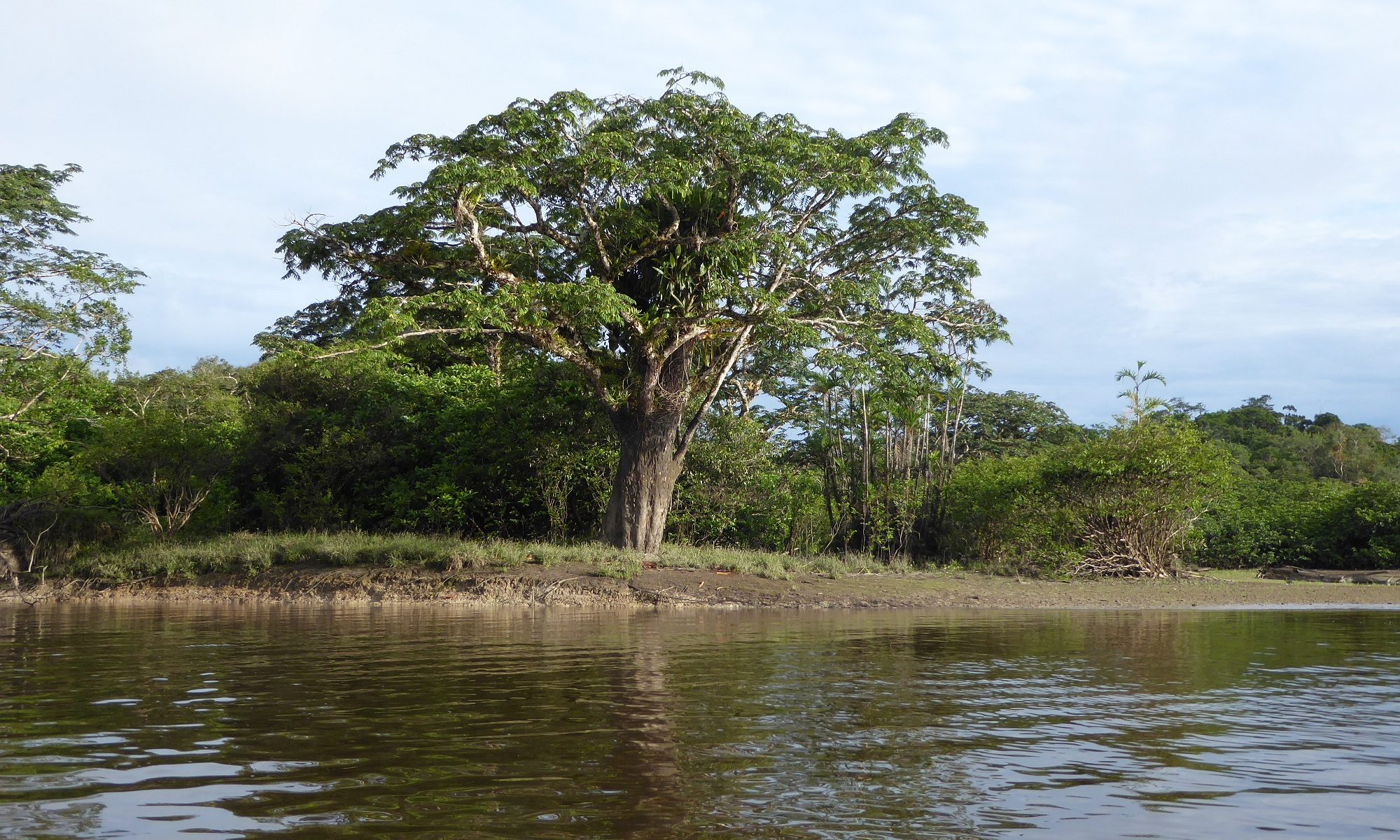Text by Paola Minoia
We met the members of the collective of Retomando Raíces, a very active group of students from the different nationalities of indigenous, afro-ecuatorians and mestizos sharing experiences of inclusion and interculturalism. The group is growing, now counting around 50 members. What we heard at the meeting of 10 May, like every Thursday in their wooden choza [hut] located in the premises of the university, is that their wish is to become an officially recognized scientific association of the university. So far, during their three years of activity, they are considered a cultural-socializing group, and the official scientific recognition would gather more institutional support.
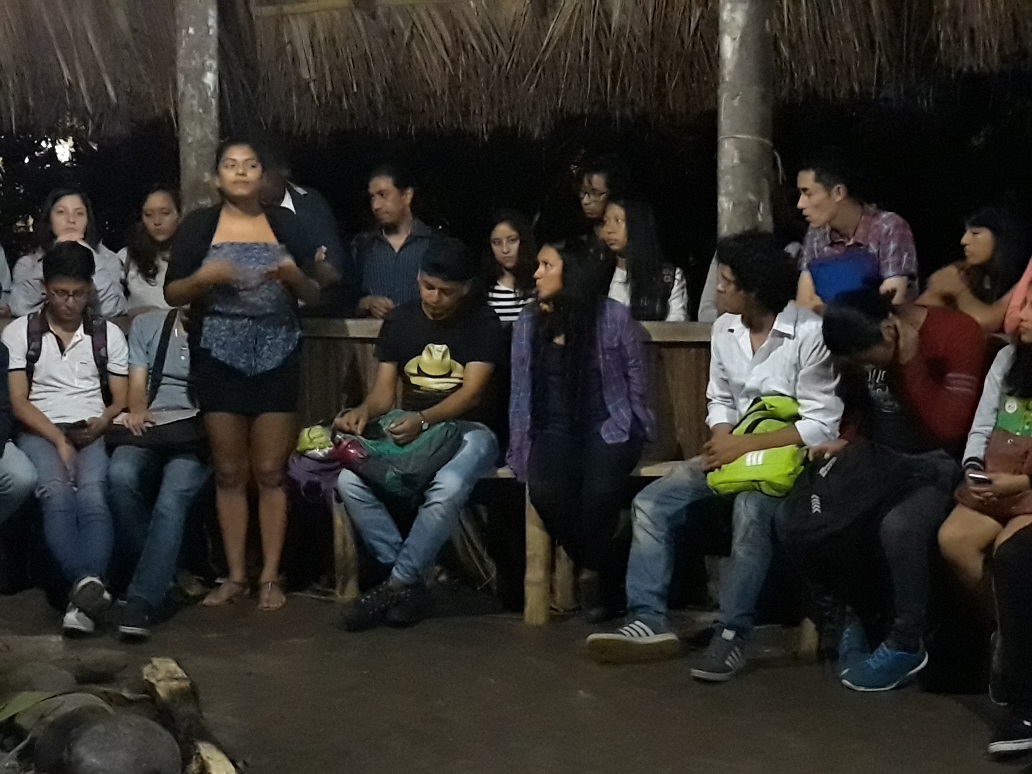
Their initiatives include toma de guayusa, a literature circle, mutual support and knowledge of specific diversities – not only based on ethnicity but also on gender and other intersectionalities. The meetings of next weeks will be dedicated to the expression of “being a student” coming from different ethnical, social and geographical realities. Sharing personal situations has important social awareness meaning.
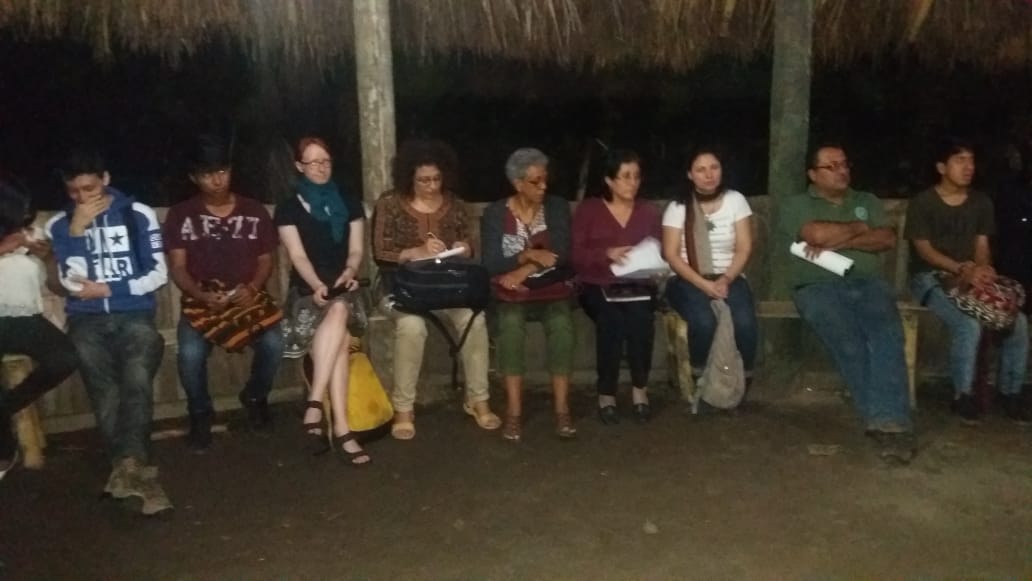
We were extremely lucky to witness their performances on the Puyo Fest on Saturday May 12 (a feast celebrating the city foundation) where they presented the hymn of the collective and an indigenous dance. They also had a stand for book exchange. From now on, they will be working to organize a forum for June 22 where the mission of making the university an intercultural space where the different realities existing in the different regions in Ecuador are shared.
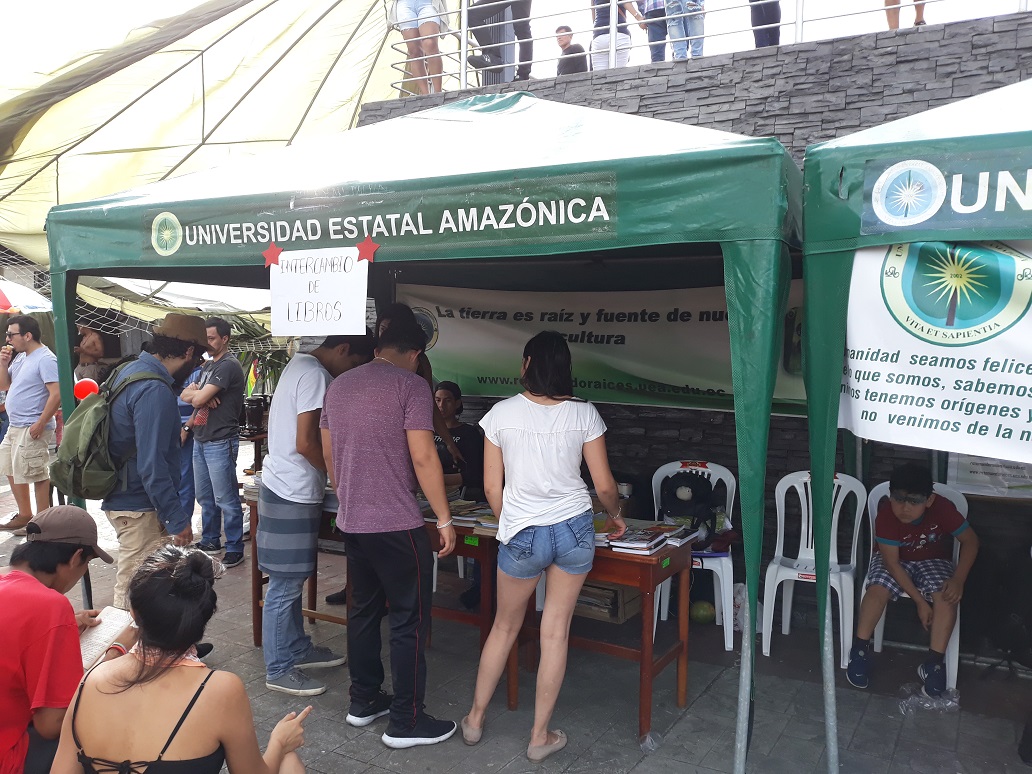
All this shows the importance of the university as an open space and a venue of cultural production. Students are teaching us that interculturalism is a reality and that institutions of (higher) education need to accompany their desire of building an inclusive plurinational society (PM).
